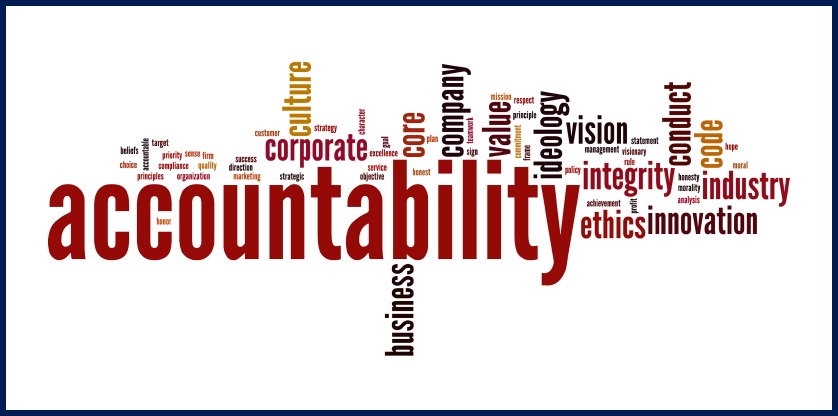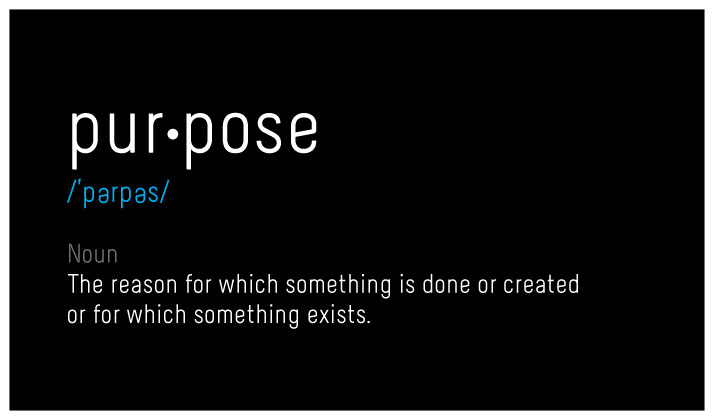|
History is littered with many stories of corporate successes and, sadly, almost as many failures. Why do some companies perform well over the long term while others become abject failures? Is it, as Jim Collins remarked in Good to great, a matter of luck, or is some other factor at play? While luck and environmental factors can be influential, I suspect there's more to it. A common thread that seems to weave its way through many of the success (Ford, GE, Johnson & Johnson, Xero, Facebook) and failure stories (Pan-Am, Enron, WorldCom, Satyam, and Toshiba, amongst many others) is captured in the title of this posting: Accountability. All directors hold, by law, a fiduciary responsibility. In Australia, New Zealand (where I live) and many other commonwealth countries, that responsibility is to the company. In the USA, it is to shareholders. Tellingly, it is never to self (despite some directors behaving as if it was!). If directors are to serve shareholders (who appoint them) and also the wider stakeholder community well, moral fortitude is a requirement, as is competence and engagement. The role of the director is one of service; of acting (read: considering information and making decisions) in the best interests of another party; and, ultimately, of being accountable for decisions made. Consequently, directors cannot afford to be asleep at the board table, nor be selfish in decision-making. Performance, accountability and ethics needs to take precedence over reputation and prestige.
0 Comments
Alongside corporate governance and board practice, the topic that occupied most of my time in 2015—as an advisor, facilitator, researcher and writer—was strategy. The numerous enquiries and discussions suggest that boards are starting to acknowledge that an involvement in strategic management in some form is appropriate. And not before time: boards are responsible for company performance, after all. Of the hundreds of articles published on Musings this year, strategy and strategic management received almost as much attention as corporate governance. These ten articles in particular stimulated plenty of discussion—and some folk sharing some strongly-held views as well!
If you want to discuss any of these postings (or ask a question about a related topic, or request some assistance), please get in touch. I'll do my best to respond within 24 hours.
The topic of corporate governance—that is, the functioning of the board—has generated much interest in the business community and beyond in 2015. From failures and successes, to emerging ideas and beyond, corporate governance has been front of mind for many throughout the year. Looking back, over 150 articles on corporate governance were added to Musings during the year. Here's a list of ten musings that generated the most discussion in 2015, in no particular order.
The top ten #strategy list will be posted on Dec 26. If you want to discuss any of these postings (or ask a question about a related topic or request assistance), please get in touch.
 As a director, where does 'risk' feature in your considerations? Is risk something that gets close attention only when a major proposal is being considered around the board table or when a significant and unforeseen problem occurs? Away from major events, is risk something associated with a register of items (that receives cursory attention)? And whose job is it to identify and manage risk in a company, anyway? Should boards rely on management to report both accurately and well, or do boards need to probe? If boards wait on management, as happened at the Christchurch Council a few years ago, the board is entirely dependent on the propensity of management to report risks both accurately and in a timely manner. If they do, well and good. If not, the consequences can be dire. Boards have a duty of care to ensure resources are applied well and that expected results are achieved. Verification is a crucial—to ensure projects are on track, that expected outcomes are being achieved, that material risks are being identified and that satisfactory mitigations are established. To monitor is insufficient. To remain silent and to rely on management reporting (only) is to abdicate one's responsibility. Take this current case, a project that has been allowed to run 100 per cent over budget. What got in the road of objective scrutiny? Hubris, ineptitude, incompetence or something more sinister? Might this problem have been avoided if hard questions were asked early on? Directors need to remember their fiduciary duty. The priority is to serve the company, not self. Directors need to be as cunning as foxes, checking and probing from several angles, in case a problem lies in wait. The best time to ask probing questions is 'now', before it's too late.
 It seems a question I posed last week, which asked whether our understanding of corporate governance might be flawed, struck a chord. Many readers replied via email and LinkedIn, and two picked up the phone to discuss the matter further. The general tenor of the feedback was supportive, which is gratifying. However, one person said they were confused by the corporate governance rhetoric. They suggested that an analogy might be useful, to help them (and others) make sense of various claims and counter-claims. The best analogy that I know of is parliament (House of Commons, House of Representatives, Congress). When the House in session, Members meet together in the debating chamber to speak, debate and make decisions on various issues. Most people would agree that this is governance in action—parliamentarians working as a collective, presumably with some purpose in mind. But is this the extent of governance, or does the scope reach beyond the debating chamber? Take the following examples. Are these closely related activities governance?
Few readers would have difficulty in giving these activities their correct names: drafting of statutes, implementation, lobbying and selection. None of these activities are governance. Intuitively, we know that the governance of our country only occurs in one place, the debating chamber, and even then only when the House is in session. Assuming the analogy is fair, why is the scope of corporate governance viewed so differently by so many? Is this analogy helpful? If you know of another that works well for you, please feel free to share it, so we can all learn from the exchange.
This muse is the second in an occasional series being written over the holiday period entitled Tough questions about boards. The first muse considered the question of board size. This one looks at board commitment, by asking the question:
The number of concurrent board appointments is a touchy topic for some directors, especially those who think in terms of turning and contributing 'on-the-fly'. How any director can expect to make meaningful a contribution without reading reports and thinking critically about the matters at hand well in advance of the actual board meeting is beyond me. I've written about this before. Then, I suggested that four concurrent directorships (of mid-cap publicly-listed or privately-held companies) was a reasonable upper limit for any director that hoped to make a meaningful contribution to board discussions, decision-making and, ultimately, company performance. The feedback at the time suggested the commentary struck a nerve, and that change was coming. Now, two years on, I'm not so sure. A conversation with a colleague earlier this week leads me to believe not much has changed. The colleague recounted a conversation he had with a director who off-handedly said that ten boards was her working maximum. "Beyond that, things get a bit hectic", she apparently said. Imagine that: ten boards! She must have a big brain to hold the details of ten companies, and know something about time management that most of us don't. However, that director is not alone, if the stories in this article are any indication. Why do boards and shareholders continue to ask busy people, including so-called celebrity directors, to join their boards when there are literally hundreds of highly competent director candidates (with sufficient space in their diary to learn the business well and make a meaningful contribution) available to choose from? Have they/we lost sight of why boards exist and of their role in value creation? On the evidence above, perhaps we have.
One of the enduring questions of my career as a board advisor and company director is this:
My father was a company director, of a large processor in the dairy sector for fifteen years. He hadn't heard of the term until six months before he retired in 2001, when a young director who had recently joined the board started using the term. To that point, my father thought that directors governed and provided direction, and he was not alone. A search back in time reveals that Eells (a researcher) was the first to use the term—in 1960—to describe the functioning of the polity (the board). Then, silence reigned until 1977 when the term appeared in HBR and subsequently in 1980 in academic journals. Yet since 2000, when the term entered the public's consciousness (perhaps as a result of media reports of hubris, incompetence, moral failures and fraud amongst directors), usage has exploded. Today, the term's usage has become so commonplace and distorted that a correction is needed. Corporate governance--the act of steering, guiding and piloting—describes what boards [should] do when in session. It does not describe and is not a proxy for the board itself, nor any other party or activity outside the boardroom. Regulators (to set rules), proxy advisers (lobbyists on behalf of shareholders and other interests), and shareholder meetings (communications) are all important, but none is corporate governance. Rob Campbell, your call to address this misunderstanding is both timely and most welcome. Directors institutes, business schools and consultants should take note, lest the expectations of the market, regulators and shareholders—not to mention directors themselves—wander further away from their original purpose, which is to pursue business performance in the best interests of the company and on behalf of shareholders.
What is the 'perfect' size for a board of directors? The debate has waxed and waned for years. Shareholders, nominating committees, researchers and boards themselves have asked a range of questions as they have tried to address the conundrum:
Answers to these questions have proved to be elusive. The reason? Context. Every situation that boards need to consider is, to some extent at least, unique. Consequently, a broad range of skills and expertise is needed in the boardroom, to address different issues that come up at different times. A configuration that works well for one situation may not work well elsewhere. Consider these vignettes:
These two cases demonstrate some of the typical challenges faced by small and large boards. While the best answer to the title question is 'it depends', a sweet spot does exist. Boards with between six and nine directors is about right—as Tracy Hickman reports—because board effectiveness seems to peak somewhere in this range. My research suggests bears this out. Boards with fewer than six directors have great dynamics and decisions are generally made quickly. However, small boards often struggle to deal with an array of strategic options, decisions and monitoring tasks. In contrast, group dynamics start to become unwieldy when the board size reaches double digits. Big boards are also expensive to run and the risk of passenger-directors increases markedly! If you'd like to know more about how to improve board effectiveness, or want to schedule a board review, please get in touch.
 Do you know why your company exists, it's raison d'etre? Can you provide a clear and succinct response to the question, or does the question leave you somewhat flummoxed? When I ask the question of others (it's usually the first thing I ask when leading a strategy development workshop), the most common response is a description of what the company does. But this does not answer the question! Most people (especially your staff, customers and suppliers) don't care what your company does, they want to know why. You need to be able to tell the story. This article, published by Harvard Business Review sums it up nicely. Here are some questions for your board to consider:
Directors need to get their collective heads around these questions. It's a matter of leadership, and of accountability. Let me know if you need any assistance with this, I'd be delighted to help.
|
SearchMusingsThoughts on corporate governance, strategy and boardcraft; our place in the world; and other topics that catch my attention. Categories
All
Archives
May 2024
|
|
Dr. Peter Crow, CMInstD
|
© Copyright 2001-2024 | Terms of use & privacy
|








